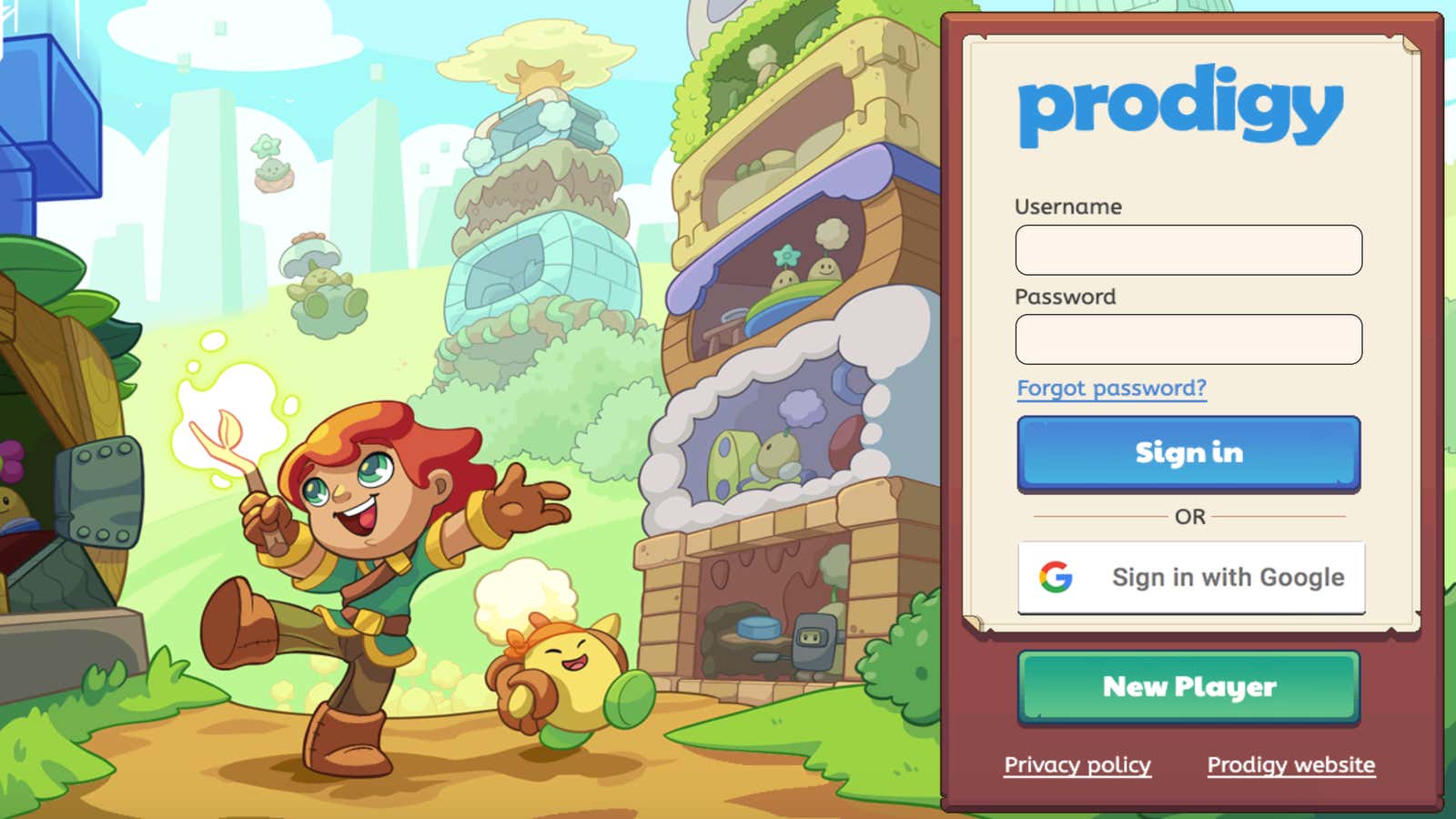This Math Video Game Is Actually Fun.

A few months ago, my son came home from school and asked if he could play another new video game that a friend told him about. This happens a couple of times a month – and often as a result I research the game and then disappoint him with my answer because it’s not age appropriate – so I didn’t immediately agree. But it turns out that this particular game called Prodigy – it’s really exciting game of battles with monsters, the game-play and study on math skills.
Prodigy is a fantasy game that is a cross between Pokémon and Minecraft’s creative mode, with some math equations added. They need to defeat monsters in order to make money for home improvement, buying pets, or earning prizes. To defeat monsters, they must correctly answer math questions in order to earn spells. The questions that Prodigy says are aligned with the government-level grades 1-8 curriculum, including Common Core and TEKS, are tailored to each child’s strengths and weaknesses :
The Prodigy assesses your child’s skill level with a quiz by asking your child more difficult or simpler questions as he plays to figure out where he is.
The placement test runs immediately and runs in the background while you play. It starts one grade below the one you or your child chose when setting up your account and then works upward to determine your child’s actual learning level. After the test ends, the difficulty level continues to adapt by redefining prerequisites or jumping ahead, depending on how well your child is doing.
My son, who is 9 years old, is currently most interested in helping some creatures called the Floatlings rebuild their home, which was… I guess? – destroyed by the Puppet Master. I don’t know, there is a lot going on in this game: battles, rescues, gems, mythical creatures, shopping, jewelry and travel to other worlds. It often sounds like another language to me, but from the excited way he talks about the game, I can tell that he is passionate about it all.
As far as being able to chat with other users on the network, which has always been one of my main concerns, Prodigy has a messaging option , but it’s rather limited:
While chats and the buddy list cannot be turned off, your students can always play offline, with all social features turned off and the game filled with computer players. This is always available on the select worlds screen after logging in.
Only predefined offers were added to the game, which were deemed safe. Users cannot enter or submit what they want. This was done for student / child privacy and safety concerns. No personal information or profanity can be printed and viewed by any other user.
Kids can play the game for free, but some features and options will not be available with a basic subscription. So if they enjoy the game, keep in mind that they’ll be pretty quick to upgrade to a premium membership for some extra bells and whistles (at $ 4.99 a month for a year, $ 7.95 a month for a six-month membership, or 8. $ 95 on regular monthly plan).
We started with a free membership and I tracked how much he actually played over the course of a month. The Prodigy reports weekly on how much they play, what math skills they practiced, and how well they did in different categories. After making sure my son adheres to this rule, I upgraded him to a monthly membership. Now that he has it and has been using it for several months (now he actually spends more time in the game when additional features are unlocked), I can upgrade it to a six month or annual plan.
My son loves playing the web version of Prodigy the most on his Chromebook, but it’s also available as an iOS and Android app . When I asked him if he would recommend it to other kids, he replied that he definitely does, because “he teaches kids math, which is great.”